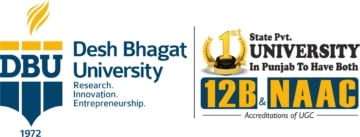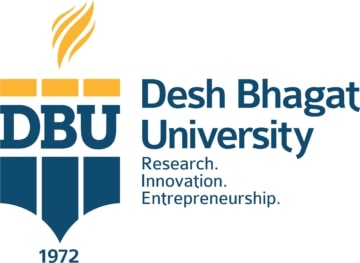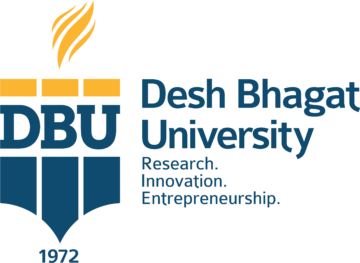Programme Objectives
January 5, 2023 2023-01-05 8:14Programme Objectives
Programme Objectives
PO1: Employ critical thinking and innovation to analyze challenges, concepts, research, and clinical outcomes and apply them to professional practice.
PO2: Analyze, interpret, integrate and evaluate information with the ability to communicate findings in a written or oral format.
PO3: Demonstrate a broad-based and integrative understanding of basic biological, physical, chemical, and/or psychological concepts that prepare them for careers in health science.
PO4: Approach patient care from a cultural humility perspective that respects varied backgrounds including but not limited to: cultural, social, religious, racial, gender, and ethnic diversity of the patient and family regarding disease and their health.
PO5: Integrate concepts from various scientific fields to meet the requirements for entry-level healthcare administrative positions or admission to professional programs in allied health fields (e.g. Radio Imaging Technique, physical therapy, Medical Laboratory Technology, physician assistant, Public Health, etc).
Bachelor of Physiotherapy
PROGRAM SPECIFIC OBJECTIVES (PSOs)
PSO1: To demonstrate academic skills and knowledge related to understanding the structural and functional of human body and applied anatomy, physiology in physiotherapy Practice.
PSO2: To apply knowledge of biomechanics of human movement in musculoskeletal, neurological, and cardio-respiratory conditions in planning, recommending, and executing Physiotherapy management.
PSO3: To apply and outline pathology of medical conditions in context with Physiotherapy, Interpret & use medical communication.
PSO4: To demonstrate skill in manoeuvres of passive movements, massage, stretching, strengthening, and various manual therapy techniques. Students will integrate Physiotherapy evaluation skills including electro diagnosis on patients to arrive at a Functional/ Physical Diagnosis in musculoskeletal, neurological, cardiovascular, and pulmonary conditions.
PROGRAM EDUCATIONAL OBJECTIVES (PEOs)
PEO1: The purpose of this curriculum is to delineate the cognitive, affective and psychomotor skills deemed essential for completion of this program and to perform as a competent physiotherapist who will be able to examine, evaluate, diagnose, plan, execute and document physiotherapy treatment independently or along with the multidisciplinary team.
PEO2: At the completion of this course, the student is expected to evaluate patients for impairments and functional limitations and able to execute all routine physiotherapeutic procedures as per the evaluation.
PEO3: At the completion of this course, the student should be able to operate and maintain physiotherapy equipment used in treatment of patient, physiotherapy treatment planning (both electrotherapy and exercise therapy) & procedures independently.
PEO4: At the completion of this course, the student should be able to provide patient education about various physiotherapeutic interventions to the patient and care givers.
Masters of Physiotherapy
PROGRAM SPECIFIC OBJECTIVES (PSOs)
PSO1: Critically evaluate, prioritize and apply physiotherapy approaches, paradigms and techniques and utilize appropriate, evidence-based skills, techniques and practice in managing and treating people with injury, disability or illness in a range of health care and/or rehabilitation settings.
PSO 2: Identify, analyze and respond appropriately to ethical dilemmas and challenges, and ethical implications of patient/client presentations.
PSO 3: Develop a reasoned rationale for clinical evidence-based physiotherapy intervention and design appropriate treatment/management plans to meet the needs of patients/clients within legislative, policy, ethical, funding and other constraint.
PSO4: Acquire and utilize new knowledge, research, technologies and other appropriate resources and methods to optimize, and to ensure cost-effectiveness, quality and continuous improvement of health care delivery and outcomes.
PSO 5: Prepare students for professional practice as Physiotherapists. Graduates will be able to practice across a range of settings, including rural and remote areas. Emphasis will be placed on preparing a contemporary health professional to be client-centered and to work effectively within an interdisciplinary team.
PSO6: Work creatively and effectively whilst upholding professional standards and relationships with a range of stakeholders (including clients, colleagues, careers, families, employers, insurers and others whose presence impacts on the patient/client, and other treatment providers and team members) with different understandings, perspectives and priorities influencing physiotherapy practice.
PSO7: Adapt communication styles recognizing cultural safety, cultural and linguistic diversity.
PROGRAM EDUCATIONAL OBJECTIVES (PEOs)
PEO1: Able to provide adequate knowledge about the treatment procedures and its benefit.
PEO2: Able to transfer knowledge and skills to students as well young professionals.
PEO3: Able to perform independent physiotherapy assessment and treatment for patients.
PEO4: Able to undertake independent research in the field of physiotherapy.
PhD Physiotherapy
PROGRAM SPECIFIC OBJECTIVES (PSOs)
PSO1:– Have a thorough knowledge of the literature and a comprehensive understanding of scientific methods and techniques applicable to their own research;
PSO2:- Be able to demonstrate originality in the application of knowledge, together with a practical understanding of how research and enquiry are used to create and interpret knowledge in their field;
PSO3:- Have developed the ability to critically evaluate current research and research techniques and methodologies;
PSO4:- Have self-direction and originality in tackling and solving problems;
PROGRAM EDUCATIONAL OBJECTIVES (PEOs)
PEO1: Possess the theoretical and scientific knowledge to perform original research at the basic, applied or clinical level leading to scientific presentations, peer-reviewed publications, and the potential to compete for extramural funding through scientific grant writing.
PEO2: Possess a breadth of knowledge in the cardiopulmonary, musculoskeletal, or neuromuscular specialty areas as they relate to impairment, functional limitation, and disability.
PEO3: Possess the theoretical and practical skills required to teach at the professional entry and advanced graduate levels within the academic community.





